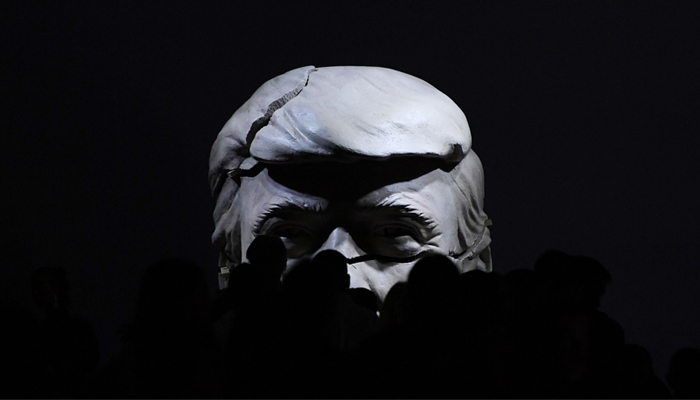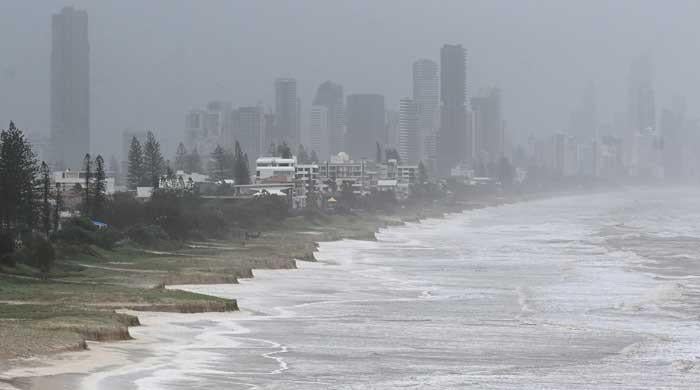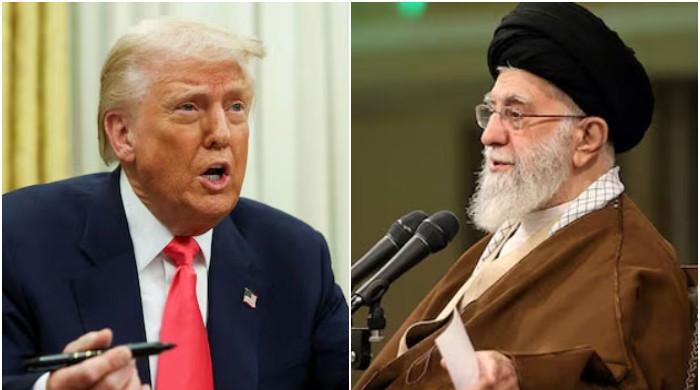Trump steps onto world stage with maiden UN speech
If Trump were restrained and measured during his address at the UN headquarters, would it be believable?
September 18, 2017

NEW YORK: US President Donald Trump is set to make his maiden address to the United Nations (UN) on Tuesday, a spectacle closely watched at home and around the world, with the potential to move armies, markets, and polls.
Trump's appearance — which aides say will last around a half-hour — is the centrepiece of a week-long marathon of remarks by world leaders, each vying to make their mark on the global stage.
But the US president will need no Nikita Khrushchev shoe-banging on the table, nor the guns and olive branches of Yasser Arafat to stand out.
"We always had the sense that it was an incredibly closely watched speech," said top Barack Obama advisor Ben Rhodes — who helped draft eight presidential addresses to the UN.
"A single line in an UNGA address could signal a new prioritization of a particular issue, a new policy direction and could send ripples out into the diplomatic community that lasted for many months to come."
Trump's speech to the General Assembly may be even more closely watched than those of his predecessors.
During eight months in office, Trump has brusquely questioned decades-old alliances and ratcheted up the heat on simmering disputes with foes in North Korea and Iran.
Allies and foes alike will rummage through his words for a better idea of how this lurching superpower foresees its future place in the world.
"They are all very anxious to hear what he has to say. And I think that he will make quite an impact," said Nikki Haley — America's ambassador to the UN.
'Slaps' and 'hugs'
That Haley has already read a draft of the speech suggests Trump may be more scripted than usual. But that does not mean the bombastic president will embrace the UN's typical diplomatic platitudes and studied ambiguity.
"He slaps the right people, he hugs the right people," Haley said of the remarks.
Trump is certain to take aim at North Korea, which has embarked on a headlong rush to marry the sinister power of nuclear and ballistic weapons.
The White House has made plain its impatience with Pyongyang's behaviour, but on this, as other issues — from the Paris climate deal to trade to the Iran nuclear deal — Trump has struggled to calibrate his message for both domestic and foreign audiences.
His approval ratings at home are already historically low and supporters are quick to cry betrayal at any perceived deviation from his hardline "America First" rhetoric.
More tub-thumping at the UN would thrill his diehard fans, but bellicose warnings of impending "fire and fury" would undoubtedly make Tokyo and Seoul — both well within the range of North Korean artillery or ballistic missiles — uneasy.
Shredding the "bad deal" that curbs Iran's nuclear program could burnish Trump's hard-charging businessman brand but would infuriate European allies and risks setting loose the dogs of war across the Middle East.
Trashing the United Nations as "just a club for people to get together, talk and have a good time" — that Trump did as a presidential candidate — is unlikely to win over friends among the delegates who vote on US proposals at the UN Security Council.
Believable?
In New York, Trump's audience will be as much Iran's Ali Khamenei and China's Xi Jinping as red-cap wearing supporters in Cincinnati or Jacksonville.
But if Trump were restrained and measured, would it be believable?
"One of the challenges for president Trump is that, because of Twitter, the entire world has seen him unfiltered so many times," said Vinca LaFleur — a foreign policy speechwriter for the then-president Bill Clinton.
"We know what his authentic voice sounds like and it is very different from what is scripted for him."
"Because his scripted voice is so different from his unfiltered voice, I think that a speech that sounds too polished would be picked apart as: is that actually what the president really thinks?"
The United Nations is just a 20-minute stroll away from Trump Tower, but it is an unfamiliar world for this tough-talking president.











